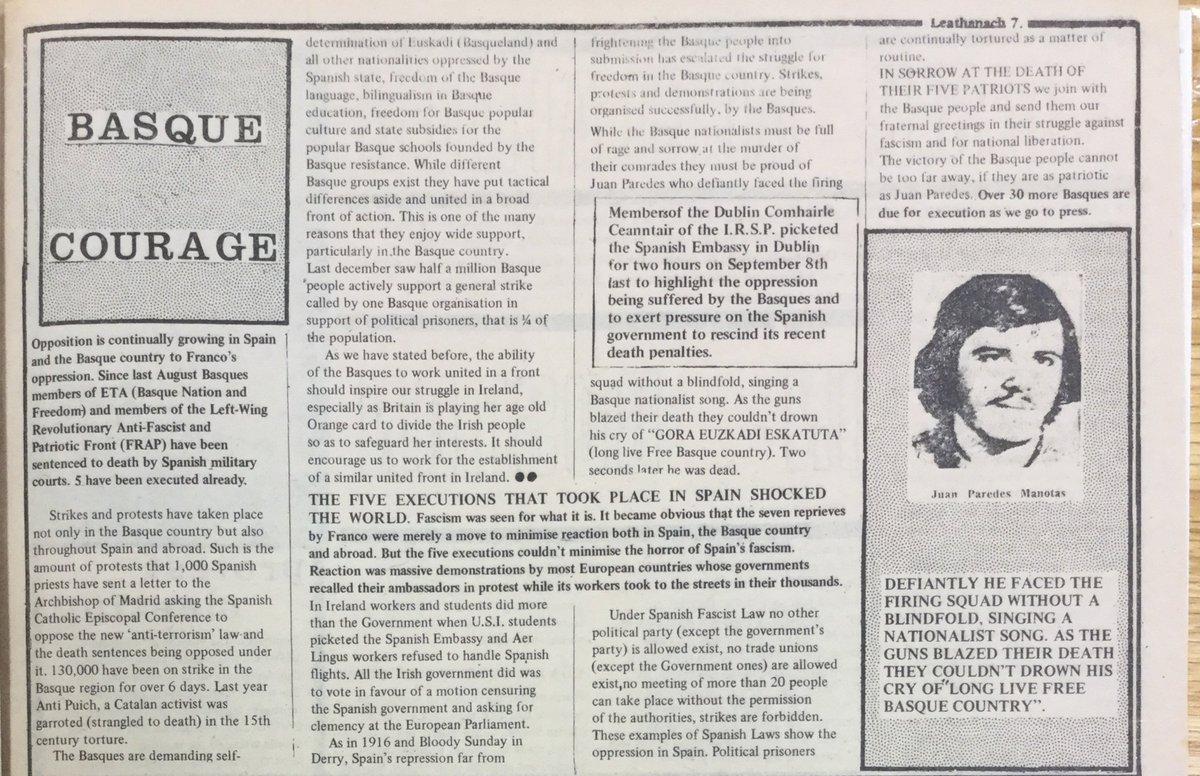Back Showing posts tagged #spain
From 1975, the Starry Plough, newspaper of the Irish Republican Socialist Party (IRSP), on the execution of five members of ETA and FRAP under Franco's fascist dictatorship.
The article highlights Irish solidarity action and draws parallels with Irish Republicanism.
It also notes the potential for several more executions, though thankfully they didn't take place and Franco died two months later.
From 1975, the Starry Plough, newspaper of the Irish Republican Socialist Party (IRSP), on the execution of five members of ETA and FRAP under Franco's fascist dictatorship.
The article highlights Irish solidarity action and draws parallels with Irish Republicanism.
It also notes the potential for several more executions, though thankfully they didn't take place and Franco died two months later.



